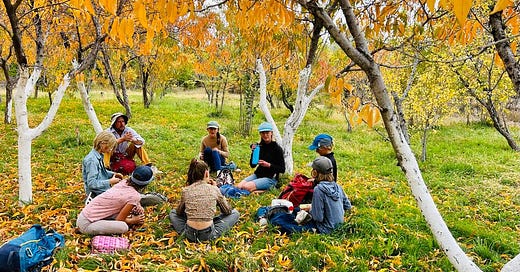Author’s Note: This is a reprint from a few years ago, before I was writing on Substack. I believe it was published on FB, and not elsewhere. I’ve returned to it often over the years, because it conveys something underlying learning and life that speaks to my heart.
A child walked out of my class yesterday.
He's learning to read, and he became angry and f…
Keep reading with a 7-day free trial
Subscribe to Juniper Heartwood to keep reading this post and get 7 days of free access to the full post archives.




